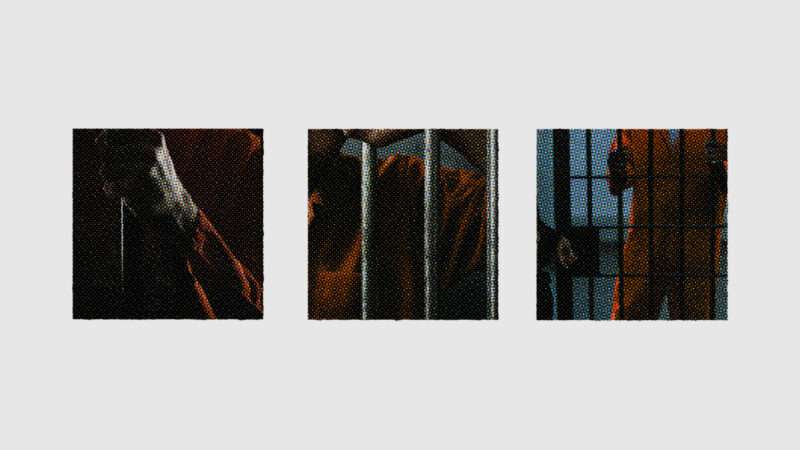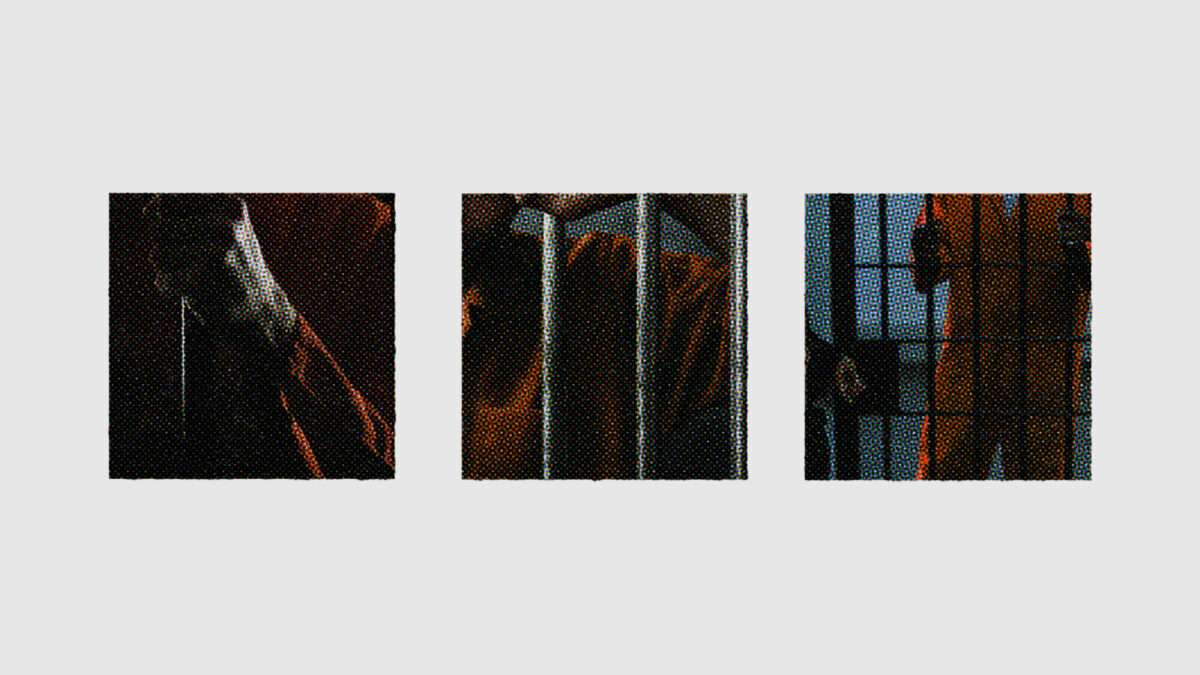
Kevin Strickland, Christopher Dunn, and Lamar Johnson all have something in common: they all have spent decades in the Missouri prison system, they all maintain their innocence, and the cases that led to their convictions have all fallen apart. Yet the men remain behind bars with no release in sight despite various government actors suggesting they should have their verdicts overturned.
It's hard to cook up a more nightmarish scenario.
Dunn was convicted in 1991 of the murder of Ricco Rogers, who was shot while on a neighborhood porch when Dunn was 18. The lone evidence against Dunn: the testimony of two boys who said later that they had been coerced by prosecutors and the police.
"Coupled with the evidence in the record that Petitioner had an alibi," wrote Texas County (Missouri) Circuit Court Judge William E. Hickle in a habeas corpus ruling issued last fall. "This Court does not believe that any jury would now convict Christopher Dunn under these facts."
But Hickle's finding is not enough to set Dunn free, thanks to a Missouri Supreme Court precedent that holds such "freestanding" claims of innocence be limited to prisoners on death row. In other words, had Dunn been sentenced to die for the 1990 crime, he would be in a more advantageous position today. Instead, he received life without parole and thus has no recourse.
"To sit there and watch the judge's reaction to everything the witnesses said, I just knew there was a chance I was going to walk out of there," Dunn told the St. Louis Post-Dispatch in April. "To hear him say I was innocent, but yet he can't free me because I'm not a death row inmate, I didn't understand."
Johnson and Strickland's cases are even more absurd, in that prosecutors agree they are innocent. "My job is to apologize" to Strickland, said Jackson County prosecutor Jean Peters Baker at a press conference in May. "It is important to recognize when the system has made wrongs…and what we did in this case was wrong. So, to Mr. Strickland, I am profoundly sorry."
Now 62, Strickland was sentenced to life in prison without the possibility of parole in 1979 for a triple-murder that took place the year prior in Kansas City. He has had several heart attacks and sometimes needs a wheelchair.
Strickland's conviction was also circumstantial, hinging on testimony from a woman named Cynthia Douglas, who picked him from a lineup. She, too, later recanted and said that police had pressured her to select Strickland. His first trial ended in a hung jury, and he was convicted on the second go-round.
"I think I've been destroyed," Strickland told the local ABC affiliate in June. "I've been placed in an environment where I had to adapt to living with all sorts of confessed criminals. The way I see things now is not normal, I would think, for somebody in society."
St. Louis prosecutor Kim Gardner zeroed in on Johnson's case two years back and sought to have him released. Convicted of the 1994 murder of Marcus Boyd, the 49-year-old's story follows a familiar arc: A jury delivered their verdict based only on testimony from a witness who later recanted, admitting police had paid him for his services.
"What we uncovered was devastating, not only to myself, but to the criminal justice system," said Gardner, who described the evidence pointing to Johnson's innocence as "overwhelming" and noted that the jury heard information that was "false and perjured." Two other men, Phillip Campbell and James Howard, confessed to the murder in 1996 and 2002, respectively, and signed affidavits saying that Johnson was not involved. Howard is in prison for a different homicide, and Campbell served just 6 years for a crime that Johnson is still paying for.
The fates of Johnson and Strickland are in the hands of Missouri Attorney General Eric Schmitt, who insists on Strickland's guilt and says that Johnson exhausted all his appeals.
If Schmitt does not petition for their verdicts to be overturned, it would be up to Gov. Mike Parson, a Republican, to issue executive clemency. Parson yesterday released a list of pardons that included Mark and Patricia McCloskey, who attracted national media attention after waving their guns at Black Lives Matter protesters in St. Louis.
In the spirit of forgiveness and redemption, their pardoning makes sense; his failure to also pardon Dunn, Strickland, and Johnson does not. If Parson wants to make a point about prosecutorial overreach, he should grant mercy to prisoners incarcerated for crimes the government concedes they did not commit.


Founded in 1971, the Libertarian Party was created to elect libertarians to public office, including the presidency of the United States.
Founded in 2001, the Free State Project is an effort to turn New Hampshire—the "Live Free or Die" state—into a libertarian paradise of minimal government, with the ultimate aim of electing a libertarian to the governorship.
Which is the more realistic path to creating a freer society? That was the question debated by Jeremy Kauffman, a member of the board of the Free State Project, and Angela McArdle, candidate for chair of the National Libertarian Party and current chair of the L.P. of Los Angeles County.
Kauffman defended the resolution, "The Free State Project is a more realistic path to liberty than the Libertarian Party," and McArdle took the negative.
The debate was moderated by Soho Forum director Gene Epstein and held in front of a live audience at the Free State Project's annual Porcupine Freedom Festival (Porcfest). It was an Oxford-style debate, so the audience voted on the proposition before and after the proceedings, with the winner being the person who moved more people to his or her side.
Narrated by Nick Gillespie.
Photo: Brett Raney

Download audio: https://reasontv-video.s3.amazonaws.com/reasontv_audio_8125285.mp3
Significance of 'breakthrough' infections remains unclear; CDC hides data...
(Top headline, 1st story, link)
USA reports highest number of new cases in world...
Masks on. Masks off. Masks on again at White House...
Capitol Police ordered to arrest bareface...
Yelling, Throwing, Tweeting: Congress...
School debate erupts anew weeks before classes resume...
Florida county to require, defying DeSantis...
Feelings Of Deja Vu Growing Amid More Mandates, Return Of Restrictions...
Return Of Long Lines: 'Crazy' Wait Times At FL Testing Sites...
Some Chasing Extra Vaccine Dose, While Scientists Debate...
NFL QB Says He Only Jabbed After Pressure From League: 'They'll Make Your Life Miserable'...
